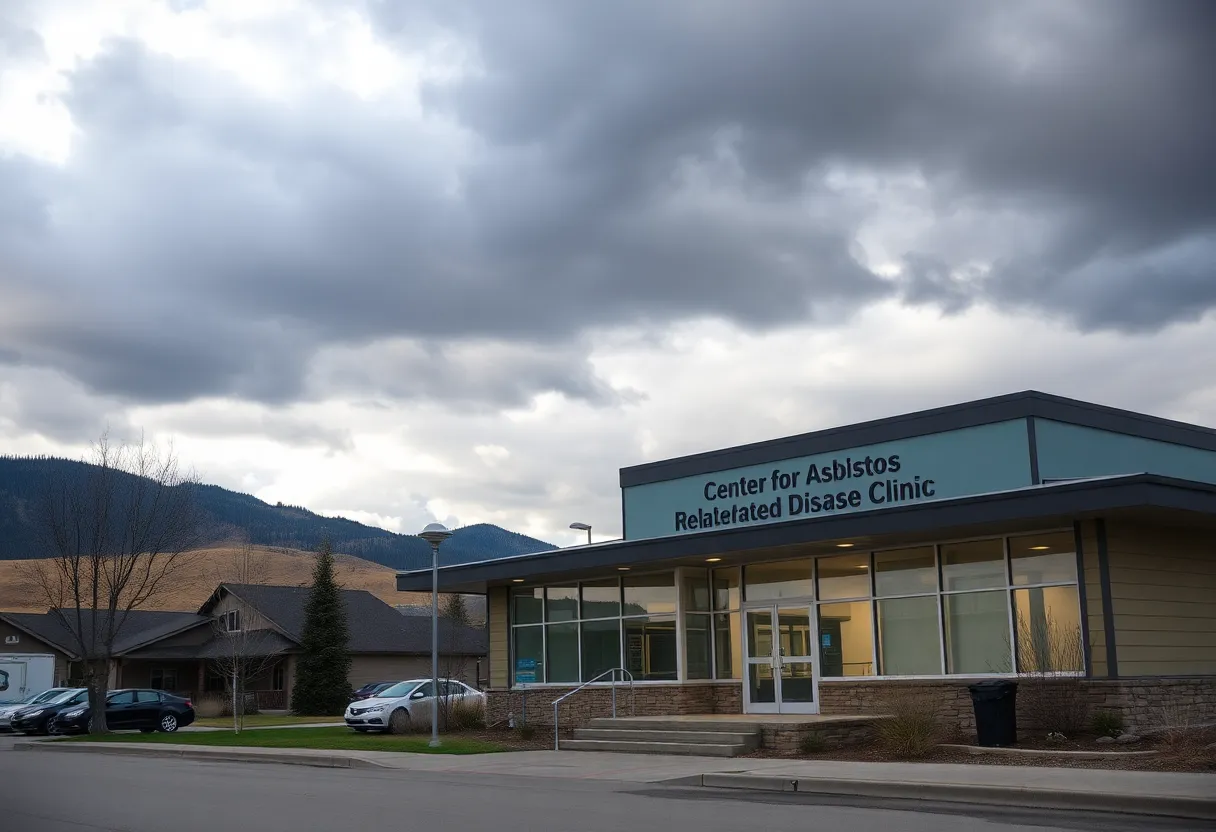News Summary
The Center for Asbestos Related Disease (CARD) in Libby, Montana, faces closure after a $3.1 million judgment from BNSF Railway, raising concerns over community health services.
Asbestos Health Clinic Faces Shutdown Amid Legal Turmoil
The Center for Asbestos Related Disease (CARD) in Libby, Montana, is on the brink of closing its doors following a staggering $3.1 million judgment awarded to BNSF Railway. This legal verdict was the result of a 2023 lawsuit in which BNSF, owned by billionaire Warren Buffett, accused CARD of perpetrating fraudulent claims over the years.
A Legal Storm Brews
The Lincoln County Sheriff’s Office served a writ of execution on May 7, 2025, as part of the legal recovery process initiated by BNSF. Just days later, on May 9, federal attorneys attempted to quash this writ, emphasizing that the U.S. government has a vested interest in CARD’s assets. In the aftermath of the seizure, local law enforcement forced all employees to vacate the clinic, even changing the locks to emphasize the closure.
Impact on Community Health Services
This controversial situation has resulted in significant consequences for CARD’s operations and the health of the community. As of May 7, all personnel, including those involved in essential operations like accounting, were prohibited from access unless explicitly supervised by deputies. With CARD being the only organization in the Libby and Troy areas providing crucial asbestos health screenings and education programs, concerns have started to rise about the implications of this closure.
Funding Challenges and Future Uncertainty
Most of CARD’s financial support stems from federal grants, which include a substantial $3 million grant from the Centers for Disease Control and Prevention dedicated to asbestos health screenings through August 2029. This grant alone accounts for approximately 80% of CARD’s operating budget. However, with the recent legal judgment and potential asset seizure, CARD’s ability to fulfill its mission is jeopardized.
The Federal Government’s Intrigue
The federal government’s involvement in this case raises eyebrows, particularly with the legal teams arguing that BNSF acted beyond its authority. They contend that the Lincoln County District Court lacks the jurisdiction to handle matters that involve federal interest, especially considering CARD’s critical connection to federal health initiatives.
Longstanding Asbestos Issues in Libby
The fate of CARD is embroiled in the extensive asbestos contamination crisis that has plagued Libby for decades. Thousands of residents have suffered from health complications, and many have succumbed to diseases such as mesothelioma, largely attributed to exposures linked to mining operations dating back to the 1920s. The vermiculite extracted from the mine contained deadly asbestos, which was shipped nationwide for use in various products.
The Environmental Protection Agency (EPA) has never turned a blind eye, placing the Libby site on the Superfund National Priorities List in 2002, a decision underscoring the severity of the health crisis in the region. While cleanup efforts are ongoing, the prospect of CARD’s closure only complicates the health landscape further.
CARD’s Response to Legal Challenges
In August 2023, CARD sought Chapter 11 bankruptcy protection to continue operations amid mounting legal issues but has since been challenged by the federal government in light of the BNSF judgment. Earlier, CARD faced another setback when a jury found it had submitted false claims on 337 occasions, costing taxpayers millions.
Despite BNSF claiming legitimacy under the False Claims Act, the railway is also embroiled in lawsuits regarding negligence and wrongful death concerning its failure to mitigate asbestos contamination in the area. This multifaceted legal drama highlights the complexity of an already dire public health crisis.
Looking Ahead
With the potential shuttering of CARD, residents are left staring down the barrel of reduced screenings and diminished access to treatment for asbestos-related health problems. Such outcomes raise grave concerns about worsening public health results in Libby, where the need for dedicated health services has never been greater.
As the community holds its breath, the fight over CARD’s future continues to unfold in a dramatic reminder of the enduring battle against the legacies of asbestos exposure.
Deeper Dive: News & Info About This Topic
HERE Resources
New Discovery in Mesothelioma Cell Types Eases Research Progress
Demolition Delays and Asbestos Concerns in Plymouth and Northville
Asbestos Concerns Resurface at Wycombe Hospital
Vernon Property Firm Fined for Asbestos Violations
Libby, Montana: A Community in Crisis After CARD Clinic Closure
A Dark Shadow of Asbestos: Unsafe Practices at the Cliffdene Hotel Demolition
Mandatory Training and Licensing for Asbestos Abatement Implemented in British Columbia
The Closure of CARD and Its Impact on Asbestos Victims in Libby, Montana
Resumption of Asbestos Removal at Acme Power Plant Marks a New Chapter in Cleanup Efforts
May Marks National Military Appreciation Month: A Call to Action for Veterans’ Health



















